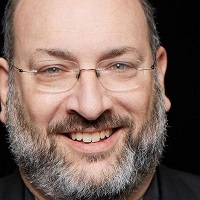 By David Harlow, JD MPH, Principal, The Harlow Group LLC
By David Harlow, JD MPH, Principal, The Harlow Group LLC
Twitter: @healthblawg
Host: Harlow on Healthcare
Hashtag: #HarlowOnHC
This edition’s topic is strategic partnerships, and I had the chance to speak about them with Ruchin Kansal (@kansalruchin), the Digital Business Strategy leader for Healthcare, Insurance and Life Sciences at Virtusa. He has also worked in healthcare strategy consulting at Big Four consulting firms and as executive in charge of business innovation at Boehringer Ingelheim. He has written about innovation in healthcare and life sciences, and we have passed each other in the physical or virtual hallways of Stanford University’s Medicine X – where he’s served on the board and I’ve been a speaker.
Episode NOW on Demand
There’s a meme that says “If you want to go quickly, go alone. If you want to go far, go together.” To me, that sums up a key tension in the healthcare landscape today, between the drive for rapid innovation and the value of strategic partnerships. Before getting into that duality, though, I asked Ruchin to talk about strategic partnerships. It’s a crucial time in healthcare, and the fragmentation that is a hallmark of the US healthcare system has brought many participants to a point of frustration, and has created an opportunity for new entrants like the tech giants (Amazon, Apple, Google etc.) who are offering an alternative. Better care, lower costs – it starts to sound like the future of healthcare is going to be the future of retail: healthcare incumbents now need to compete with new healthcare market entrants, and strategic partnerships become more important to create robust alternatives for the future of healthcare.
While in my opinion the crisis has been brewing for years, Ruchin’s sense it that we have only recently reached a breaking point, for the following reason: For the broad middle in the US economy — 60% of the population, with annual incomes between $40,000 and $100,000 – income is flat and healthcare costs are increasing; we need to address that because the burden of cost is now high enough that people will demand change, a consumer-driven revolution.
In the past, Ruchin was involved in some pharma-linked strategic partnerships, and he had a few takeaways from that experience. Since the pharma company was a couple of steps removed from the patient, he saw that the biggest challenge was gaining an understanding of how care is paid for and experienced by patients. That required leveraging partnerships with payors and others in a patient-centric mode and led to these learnings:
- There has to be a clear strategy that you can use to rally the troops, to bring resources of the organization to bear – “not just about stock price or something like that.”
- There has to be leadership commitment, openness to failures along the way, commitment for a sustained period of time, or else the partnership can’t succeed.
- You have to be careful to set up a workable governance structure; partnerships that were successful had equal investments of resources on both sides.
- You can’t know everything when you go in – you need to be open to learn. In Ruchin’s view, Amazon/ Berkshire Hathaway/ JP Morgan Chase and others must be guided by these principles.
He has a guiding principle that is eminently practical. Ruchin calls it “The 80-80 rule.” In his view, the key to success in driving innovation, whether through strategic partnerships or otherwise, is being 80% confident that you will only be 80% right the first time. As he notes, given that the cost of failure is so high, there is a desire to be 100% sure before starting a project, signing a contract, dedicate new resources — but you need to take risk, take chances; it’s OK to be 80% confident, OK if you’re only 80% right. After all, if you’re 100% confident, you’re probably wrong. To move forward, it is important to take calculated risks.
When I asked Ruchin what he hopes or expects would different in five years’ time, he focused on cancer research and treatment. As the second-leading cause of death worldwide, with an annual cost of $1 trillion to the world economy, Ruchin sees the siloed approach to cancer research and treatment as an impediment to progress and would like to see provider organizations, research labs, pharma company labs, biobanks, others, all pool data and resources through a global consortium. He sees an opportunity for everyone involved to benefit in terms of solving clinical problems.
It’s an optimistic vision for the future. Stay tuned.
About the Show
Tune in to Harlow on Healthcare to hear healthcare attorney and award-winning blogger David Harlow and his guests discuss the critical issues shaping the future of health IT and healthcare at large. From cybersecurity to AI, precision medicine to health reform, if the topic is trending Harlow is on it.
This article was originally published on HealthBlawg and is republished here with permission.
